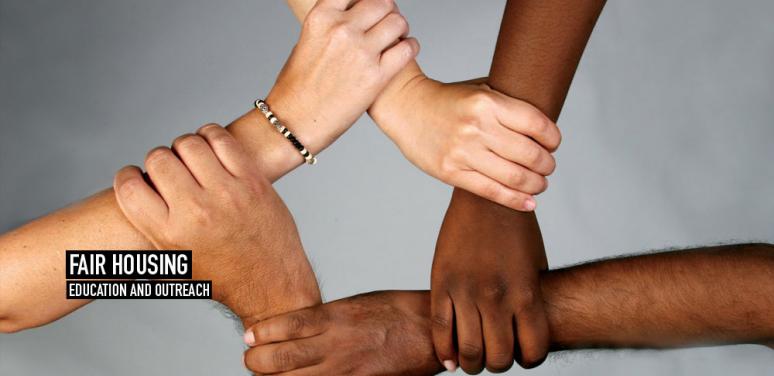Fair housing rights to protect you under the law

How the Fair Housing Act Protects Renters and Buyers from Discrimination
What is the Fair Housing Act?
The federal Fair Housing Act, Title VIII of the Civil Rights Act of 1968, was intended to protect the buyer/renter of a dwelling from seller/landlord discrimination. The law was the result of a civil rights campaign against housing discrimination in the United States. It was approved, at the urging of President Lyndon B. Johnson, only one week after the assassination of Martin Luther King, Jr.
The Act is enforced by the United States Department of Housing and Urban Development.
HUD examines complaints of housing discrimination based on race, color, religion, national origin, sex, disability, or familial status. At no cost to you, HUD will explore the complaint and try to resolve the matter with both parties. The process to file a complaint is covered below.
NOTE: If you want to learn more about your rights as a renter in Kansas, read this Kansas Tenant Handbook. It was originally published by the Kansas agency Housing and Credit Counseling, Inc. (HCCI), which helps people in Kansas with a variety of consumer issues.
Here is a video to show how the Fair Housing Act protects you from discrimination on the basis of LGBTQ status.
This video talks about discrimination in Idaho, but it also applies to Kansas and other states as well. If you feel you have been a victim of housing discrimination because of LGBTQ status, you can apply for assistance from KLS online or call the application line at 316-267-3975. Or you can learn how to file a complaint directly with HUD by going here.
What Housing Is Covered?
The Fair Housing Act covers most housing. In some cases, the Act exempts owner-occupied buildings with no more than four units, single-family housing sold or rented without a broker, and housing operated by organizations and private clubs that limit occupancy to members.
What Is Prohibited?
In the Sale and Rental of Housing: No one may take any of the following actions based on race, color, national origin, religion, sex, familial status or handicap:
- Refuse to rent or sell housing
- Refuse to bargain for housing
- Make housing unavailable
- Deny a dwelling
- Set different terms, conditions or privileges for sale or rental of a dwelling
- Provide different housing services or facilities
- Falsely deny that housing is open for inspection, sale, or rental
- For profit, persuade owners to sell or rent (blockbusting) or
- Deny anyone access to or membership in a facility or service (such as a multiple listing service) related to the sale or rental of housing.
 In Mortgage Lending: No one may take any of the following actions based on race, color, national origin, religion, sex, familial status or handicap (disability):
In Mortgage Lending: No one may take any of the following actions based on race, color, national origin, religion, sex, familial status or handicap (disability):
- Refuse to make a mortgage loan
- Refuse to give info about loans
- Impose different terms or conditions on a loan, such as different interest rates, points, or fees
- Discriminate in appraising property
- Refuse to buy a loan or
- Set different terms or conditions for purchasing a loan.
In Addition: It is illegal for anyone to:
- Threaten, coerce, bully or interfere with anyone applying a fair housing right or assisting others who exercise that right
- Advertise or make any statement that indicates a cap or preference based on race, color, national origin, religion, sex, familial status, or handicap. This bar against discriminatory advertising applies to single-family and owner-occupied housing that is otherwise exempt from the Fair Housing Act.
Additional Protection if You Have a Disability
If you or someone connected with you:
- Have a physical or mental disability (including hearing, mobility and visual impairments, chronic alcoholism, chronic mental illness, AIDS, AIDS Related Complex and mental retardation) that greatly limits one or more major life activities
- Have a record of such a disability or
- Are regarded as having such a disability
Your landlord may not:
- Refuse to let you make realistic changes to your dwelling or common use areas, at your expense, if needed for the disabled person to use the housing. (Where rational, the landlord may permit changes only if you agree to restore the property to its original condition when you move.)
- Refuse to make sensible variations in rules, policies, practices or services if needed for the disabled person to use the housing.
Example: A building with a ‘no pets’ policy must allow a visually impaired tenant to keep a guide dog.
Example: Let’s say an apartment complex offers tenants ample, unassigned parking. They must honor a bid from a mobility-impaired tenant for a reserved space near her apartment if it is needed to assure that she can have access to her apartment.
However, housing need not be made vacant to a person who is a direct threat to the health or safety of others or who now uses illegal drugs.
Requirements for New Buildings
In buildings that were ready for first use after March 13, 1991, and have an elevator and four or more units:
- Public and common areas must be handy to persons with disabilities
- Doors and hallways must be wide enough for wheelchairs
- All units must have:
- An accessible route into and through the unit
- Handy light switches, electrical outlets, thermostats and other environmental controls
- Reinforced bathroom walls to allow later fitting of grab bars and
- Kitchens and bathrooms that can be used by people in wheelchairs.
If a building with four or more units has no elevator and were ready for first use after March 13, 1991, these standards apply to ground floor units.
These must-haves for new buildings do not replace any more stringent standards in State or local law.
Housing Opportunities for Families
Unless a building or community makes the grade as housing for older persons, it may not discriminate based on familial status. That is, it may not discriminate against families in which one or more children under 18 live with:
- A parent
- A person who has legal custody of the child or children or
- The designee of the parent or legal custodian, with the parent or custodian's written permission.
Familial status protection also applies to pregnant women and anyone securing legal custody of a child under 18.
Exemption: Housing for older persons is exempt from the ban against familial status discrimination if:
- The HUD Secretary has decided that it is specially designed for and occupied by elderly persons under a Federal, State or local government program or
- It is occupied solely by persons who are 62 or older or
- It houses at least one person who is 55 or older in at least 80 percent of the occupied units. It must also adhere to a policy that demonstrates an intent to house persons who are 55 or older.
A transition period permits residents on or before September 13, 1988, to continue living in the housing, regardless of their age, without interfering with the exemption.
If you believe your rights have been violated….

The U.S. Department of Housing and Urban Development (HUD), a Kansas or local fair housing agency is ready to help you file a complaint, or you can apply for legal assistance from KLS online or call the application line at 1-800-723-6953.. Go online to HUD to learn how to file a complaint.
What to Tell HUD
- Your name and address
- The name and address of the person your complaint is against (the respondent)
- The address or other description of the housing involved
- A short description of the alleged violation (the event that caused you to believe your rights were violated)
- The date of the alleged violation
Where to Write or Call:
Send a letter to the fair housing office nearest you, or if you wish, you may call that office directly.
Great Plains Office -- Fair Housing Hub
U.S. Department of Housing and Urban Development,
Gateway Tower II, 400 State Avenue, Room 200, 4th Floor,
Kansas City, KS 66101-2406
Telephone (913) 551-6958 or 1-800-743-5323
Fax (913) 551-6856
TTY (913) 551-6972
E-mail: Complaints_office_07@hud.gov
Check out our pages on Resolving legal barriers to employment and housing and Facts about record expungement in Kansas.
Read about Tenant issues and rights for Kansas renters



